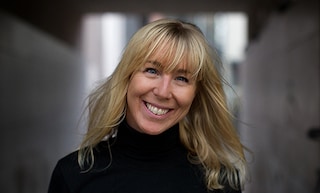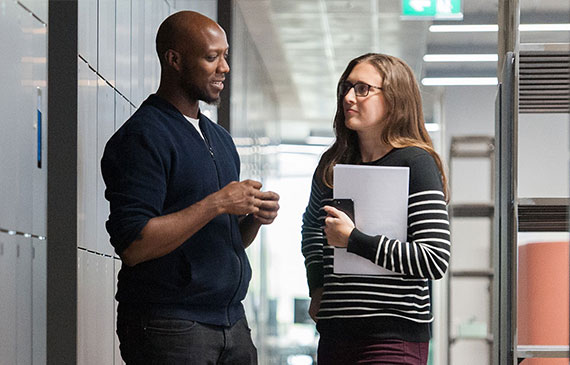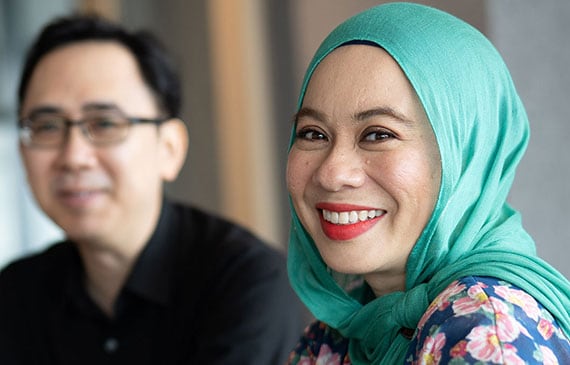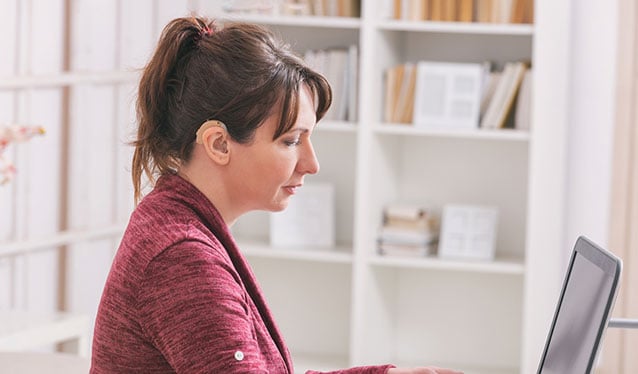Updated 12 November 2024
Philip Morris International is committed to being a great employer and to playing our part in contributing to the UN Sustainable Development Goals, with a bold ambition to rid the world of cigarettes as quickly as possible so that we can deliver a smoke-free future.
To be successful, that means building an inclusive work environment where everybody is welcome, where personal situations are understood, where differences are valued and where everyone is treated with fairness and respect. We want our approximately 83,170 employees worldwide to feel welcomed, seen and heard for who they are and to have the opportunity to contribute and achieve their full potential, regardless of gender, age, race, nationality, ethnicity, gender identity, sexual orientation, different ways of thinking and physical abilities, or any other characteristic that makes them themselves—visible or invisible.
The Valuable 500
PMI’s Chairman of the Board and former CEO André Calantzopoulos on joining The Valuable 500 initiative on disability inclusion
André Calantzopoulos joined The Valuable 500 in 2021, committing to action in furthering workplace disability inclusion at PMI.
PMI’s Executive Chairman and former CEO André Calantzopoulos joins The Valuable 500 initiative on disability inclusion
Music starts
Logos for Philip Morris International and The Valuable 500 appear on screen.
Andre Calantzopoulos, former Chief Executive Officer, Philip Morris International, speaks to camera.
At PMI, we recognize the importance of having a diverse and inclusive workforce,
If we are to achieve our ambition of creating a smoke-free future.
Today I am proud to share that we are joining The Valuable 500,
An international initiative putting disability on the leadership agenda within corporations.
And I have made a public commitment to make disability part of our inclusion and diversity focus at PMI.
According to the World Bank, disability affects approximately 15 percent of the world’s population, or more than one billion people.
Disability ranges from mild to severe and includes physical, sensory, and cognitive disabilities.
For example, hearing or sight loss, loss of limbs and paralysis, dyslexia, learning difficulties, autism and depression, just to name a few.
We all certainly know someone who presents a mild or severe condition and certainly many of our consumers do.
Indeed, we need to challenge the stereotype that disability is binary: able versus not able.
Disability does absolutely not mean lower performance at work.
When the work is adapted to the condition, outcomes are often brilliant.
Ability reveals itself in many ways, when we open our minds and foster it and provide the necessary working environment.
At PMI we have much to learn and much to do on disability inclusion.
But we are committed to making progress and matching words with action in this important dimension of diversity.
Specifically, for 2021 we will:
Launch a global employee resource group on disability to raise awareness and build a shared sense of community and allyship amongst employees.
Make our internal and external information, communication technologies, starting with our websites, more accessible to all;
Encourage open conversations and provide education and learning resources to reduce prejudice and support mental health- a focus area of particularly importance in today’s context.
Together with other members of The Valuable 500, a global community of corporations with shared values, and aspirations for disability inclusion, we can contribute to a fairer world.
Logo for Philip Morris International is seen on screen.
Music ends.
Our Chairman of the Board and former CEO, André Calantzopoulos, signed up to The Valuable 500 to focus PMI’s attention and accelerate our action to advancing disability inclusion across our global workforce. Since then, PMI has:
- Launched PMI Able, an Employee Resource Group (ERG). ERGs at PMI are employee-led groups each with an Executive Team sponsor. The ERGs are open to all employees with the purpose of creating a space for community, connection, understanding, and networking. PMI Able is an important platform for creating a greater understanding of different abilities across our global workforce and building a sense of belonging, visibility, and allyship in how we can support one another at PMI.
- Made its internal and external communication technologies more accessible to all.
- Worked to reduce the prejudice and misunderstanding associated with disability, with a focus on mental health, so that we create a workplace in which individuals feel comfortable speaking openly about these topics.
What is The Valuable 500?
Launched by social entrepreneur and activist Caroline Casey at the World Economic Forum Annual Meeting in January 2019, The Valuable 500 aims to put disability on the global business leadership agenda.
The goal of The Valuable 500 is to persuade 500 multinational companies that have at least 1,000 employees to make a public commitment to advance disability inclusion in their organization. By engaging the most influential business leaders and brands, the initiative aims to create corporate change that unlocks the business, social, and economic value of the 1.3 billion people living with disabilities around the world, and the millions of us who will become disabled over time.
“We are delighted to welcome PMI as a member of The Valuable 500. Our global movement is putting disability on the business leadership agenda. By joining our inclusion revolution, businesses have the opportunity to accelerate growth, drive innovation, and improve brand reputation. […] We believe everyone has a unique perspective, and when disabled people are included, we all win.”
Caroline Casey (pictured), Founder of The Valuable 500
Caroline Casey, Founder of The Valuable 500, on how business can champion disability inclusion
The Valuable 500’s Caroline Casey spoke to PMI about the importance of disability inclusion and how businesses can help to drive lasting, systemic change.
Caroline Casey, Founder of The Valuable 500, on how business can champion disability inclusion.
Music starts
Logos for Philip Morris International and The Valuable 500 appear on screen.
Word on screen read: We caught up with Caroline Casey, Founder of The Valuable 500, to hear why disability inclusion is so important in the workplace.
Caroline Casey speaks to camera:
We're starting to realize that we have been underestimating disability
80 percent of disability is invisible
and so we often have no idea who might be living with an experience of disability
80 percent is acquired between the ages of 18 and 64.
90 percent of our companies claim to be passionate about diversity and inclusion
and only four percent consider disability
And disability isn't about them, it's about us.
Every single one of us at some point in our life is going to experience disability personally,
because we hope that we grow old and disability does not discriminate so it can touch anybody in any way
And so when we have this conversation, it's actually about us
What we wanted is to find 500 of the world's most intentional leaders with their brands
to commit to going on a journey with us
to putting disability equally into the inclusion agenda
and then being part of this community to systematically change the business system
Please get them to join PMI and join us because this is our inclusion revolution for everyone.
Philip Morris International logo is seen on screen.
Music ends.
Watch: Our leaders on disability inclusion
PM Russia's Director People & Culture on disability inclusion
Music starts
Philip Morris International logo is seen on screen.
Olga Sidash, Director, People & Culture at Philip Morris Russia, speaks to camera:
Since 2016, working with people with disabilities is one of our strategic pillars in I&D (inclusion and diversity).
We at PM Russia took a very strong commitment to break the barrier and to ruin the stereotype
We have started our journey from getting a full commitment from the management team
then we have defined the approach towards hiring which was based not only on the open vacancies, but based on the skill set and professional background of the candidates,
Then we have conducted an audit of our office spaces
And also made a big reconstruction of our St Petersburg factory to make it accessible for the people in the wheelchairs.
We have educated our employees on different diversity matters and unconscious bias
Moreover this year, we have launched a business school called equal opportunities
This is a project for people with disabilities where everyone across Russia can get an education and be potentially employed by international employers
As a result today we have 48 people with disabilities working in PM Russia
I'm very proud of our journey, our P&C (People and Culture) team and all employees who support what we do to drive our inclusive culture.
Philip Morris International logo is seen on screen.
Music ends
Olga Sidash, Director, People & Culture at PM Russia, shares insights on disability inclusion.
MD of PM Türkiye on disability inclusion
Music starts
Philip Morris International logo is seen on screen.
Filiz Yavuz Diren, MD of PM Turkey, speaks to camera:
Disability inclusion is a topic that is very close to my heart
We have relatives, friends, neighbors, colleagues who have different disabilities.
In PMI, we have the commitment to provide the best work environment,
to embrace employees with visible and invisible disabilities.
We know very well that education and awareness make a difference, make a change.
This week we are launching an awareness and training campaign on disability inclusion for 150,000 retailers among Turkey.
Thanks to our digital infrastructure, we are collaborating with the prominent disability association for this project
I'm proud to say that we will train all our employees till the end of next year on disability inclusion
Our vision is to advance in our inclusion and diversity culture and make history on how we do business as well.
Philip Morris International logo is seen on screen.
Music ends
Filiz Yavuz Diren, Managing Director of PM Türkiye, discusses disability inclusion in the workplace.
PMI Able
PMI ABLE is an employee resource group that helps employees develop a common understanding within the company of different types of disabilities, both obvious and hidden.
It provides a safe space to talk and share openly and allows employees to expand their awareness. It will help us create a more inclusive workplace for everyone, fostering respect, inclusion, and opportunities for all.






